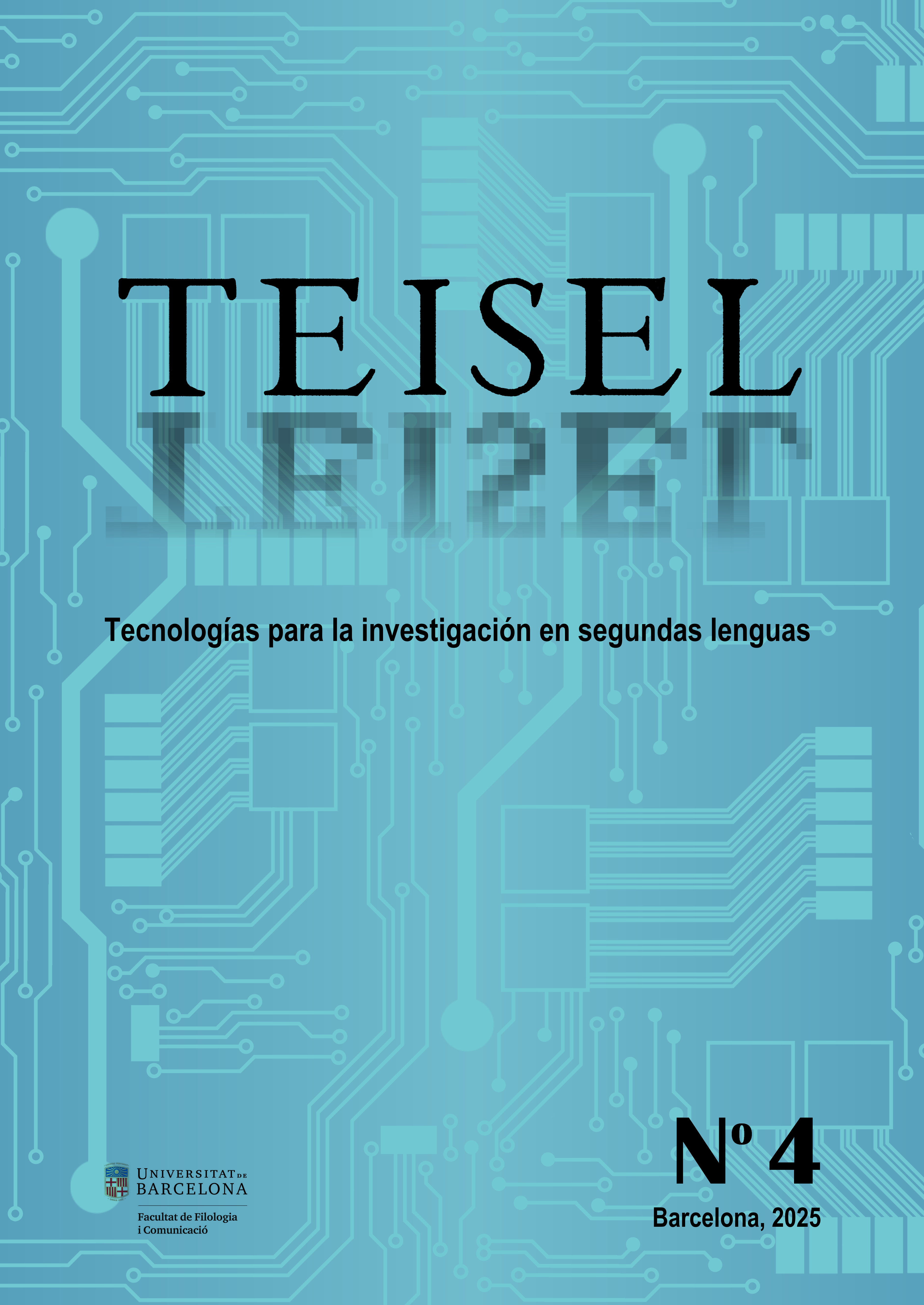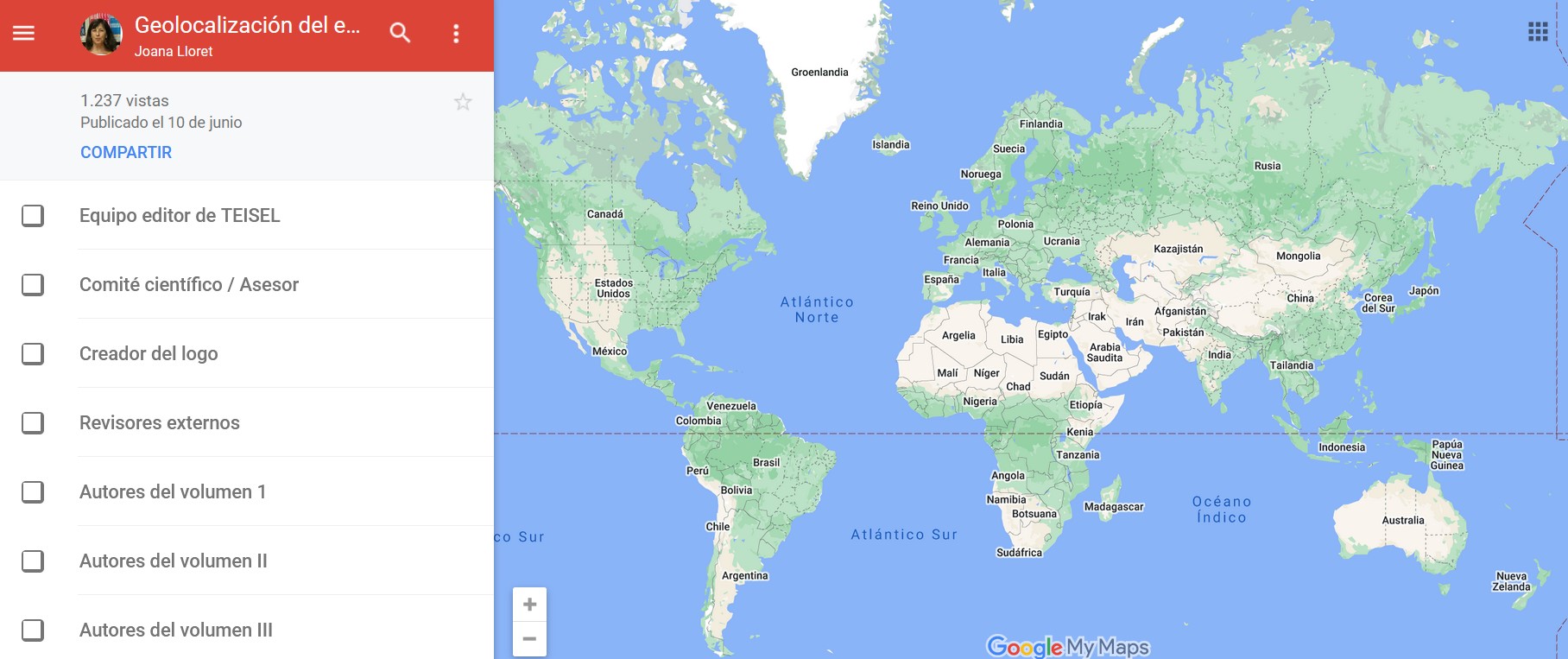EtiqueTool: an error-tagging tool that empowers the teacher-researcher
DOI:
https://doi.org/10.1344/teisel.v4.47175Keywords:
L2, Learner Corpora, Error Analysis, writing, computer applicationAbstract
This article presents EtiqueTool (http://www.etiquetool.com), a web-based tool specifically designed for Computer-aided Error Analysis (CEA) of Computerized Learner Corpora (CLC) in Spanish as a second language (L2). Its main functions include the coding and tagging of errors according to a predefined but highly modifiable and adaptable taxonomy. EtiqueTool also offers additional functionalities to complement and contrast results, such as basic descriptive statistics, and the ability to generate lists of errors based on simple or combined searches according to the selected variable repertoire. The originality of the tool lies in (1) its simplicity, as the analysis is conducted in a word processor and EtiqueTool codes and manages the data; (2) its practicality, being a web-based tool that requires no installation; (3) its collaborative nature, facilitating collective work in all stages of EA, allowing all users to manage the same samples without generating parallel versions; (4) its versatility, enabling adaptation to other taxonomies, the addition of informants, the incorporation of multiple samples into user profiles, and the ability to work with different types of variants/variables, thereby facilitating Contrastive Interlanguage Analysis (CIA) and the development of longitudinal studies. Section 1 describes the CLC and some of the main text analysis and corpus management software. Section 2 addresses CEA, its phases, its challenges, and the available computing resources. Section 3 is dedicated to EtiqueTool: its conception and development, objectives, design, and interface, illustrating with examples how some of its main functions are executed. Overall, the aim is to demonstrate how EtiqueTool, created by and for teachers, can contribute to the implementation of CEA in a precise, reliable, and straightforward manner.
Downloads
Downloads
Published
Issue
Section
License
Copyright (c) 2024 lidia bellido barea

This work is licensed under a Creative Commons Attribution 4.0 International License.





